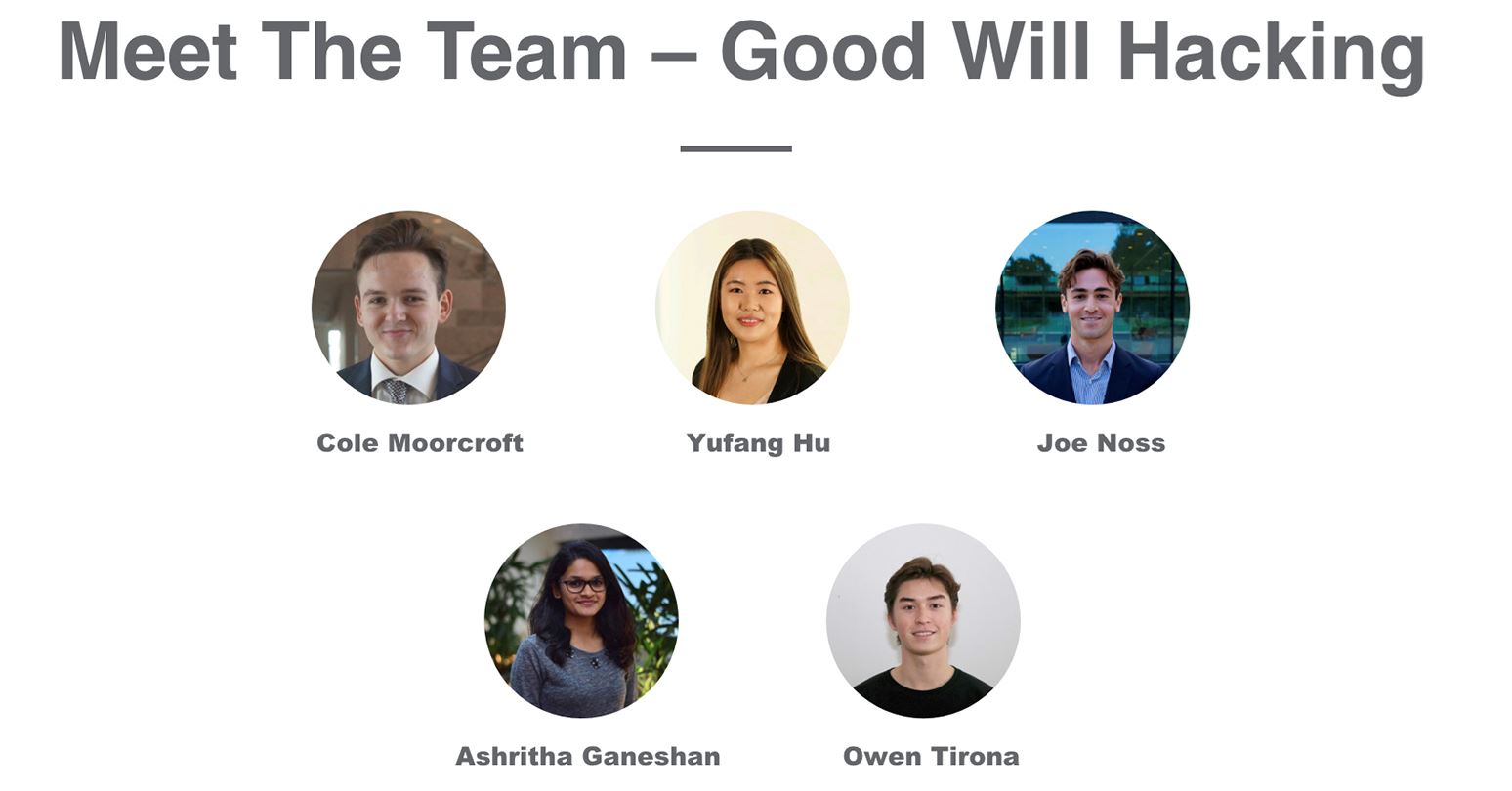Joe Noss is an MSc ’21 candidate. In his article below, he writes about his experience with the Hack the Case analytics competition, held virtually April 8-20, and how it taught his team to survive the unknown.
When you throw a young dog into a pool or lake, something magical happens. You watch as there is a moment of disbelief and shock before instinct kicks in – the dog begins to paddle, moving in the direction of wherever it needs to go. The ability to be thrown into an unknown situation and keep your head above water is one of the toughest to develop as opportunities to practice this skill are hard to come by. Usually, we choose to stay within our comfort zone. In doing so, we prevent ourselves from having experiences that would develop this unique talent. However, the Ivey Business School, specifically the MSc in Business Analytics program, inculcates this ‘grittiness’ within its students. Ivey’s Hack the Case event is the quintessential example of this type of learning, as the two-week case competition regularly pushed us to solve a business problem in a challenging environment.
A challenging start
Hack the Case began with a week-long seminar on how to use the SAS coding language to manipulate and analyze data. With no idea as to what specific parts of this seminar would be the most useful, I had to try my hardest to soak in as much information as possible. In a way, through this training, Ivey gave us an opportunity to try and ‘learn how to tread’ before being thrown into the ocean. However, when the case was finally revealed days later, it quickly became clear that the training would be quite disparate from reality. With no experience in digital marketing, and even less with SAS, my teammates and I struggled to keep our heads afloat. The first few days of the competition ended with little progress, with our team facing issues figuring out simple processes like how to pull the tables we needed to perform our analysis. We were drowning.
A moment of clarity
And suddenly, just as a dog does with its first-time swimming, we had a moment of clarity and everything began to click. Instead of wasting time trying to master the SAS language and code all the analysis ourselves, we began bootstrapping using the existing out-of-the-box tools provided by the powerful SAS platform. While we were not trained during the seminar on how to use the entire platform, the MSc program had pushed us to consistently train ourselves in many languages and tools using online resources. As a result, we quickly found the right guides to explain how to properly use the potent platform. Finally, we were swimming.
Confidence is key
However, navigating the platform was half the battle. An equally tough challenge was figuring out how to effectively act on the insights we had generated. Due to our comfort with the unknown and our training sessions with the Deloitte analysts, our team was able to quickly convert its analysis into a meaningful and realistic set of actions. In this context, one of the most beneficial lessons Ivey taught was being confident, even in the unknown. With little time to waste debating which direction our team should go in, it was best to be confident in our analysis and hypotheses, rather than second-guess them throughout the week. Moreover, by being comfortable with our team’s ability to solve the problem, we were able to work without being anxious about the outcome.
Ultimately, our team managed to provide a cogent, comprehensive recommendation to Scotiabank, including a prediction model that helped reduce churn by identifying customers who are at risk of being lost. While I was proud of our team’s (Good Will Hacking) final deliverable, I was even more impressed by the drive and comfort in unknown situations that the team exhibited.
After Hack the Case, I feel confident that I can be given any type of business problem, some unknown tool to solve it, and provide a reasonable solution within a short amount of time. While many business schools are exceptional at teaching students strategy, finance, or analytics, only Ivey teaches its students to survive the unknown.
